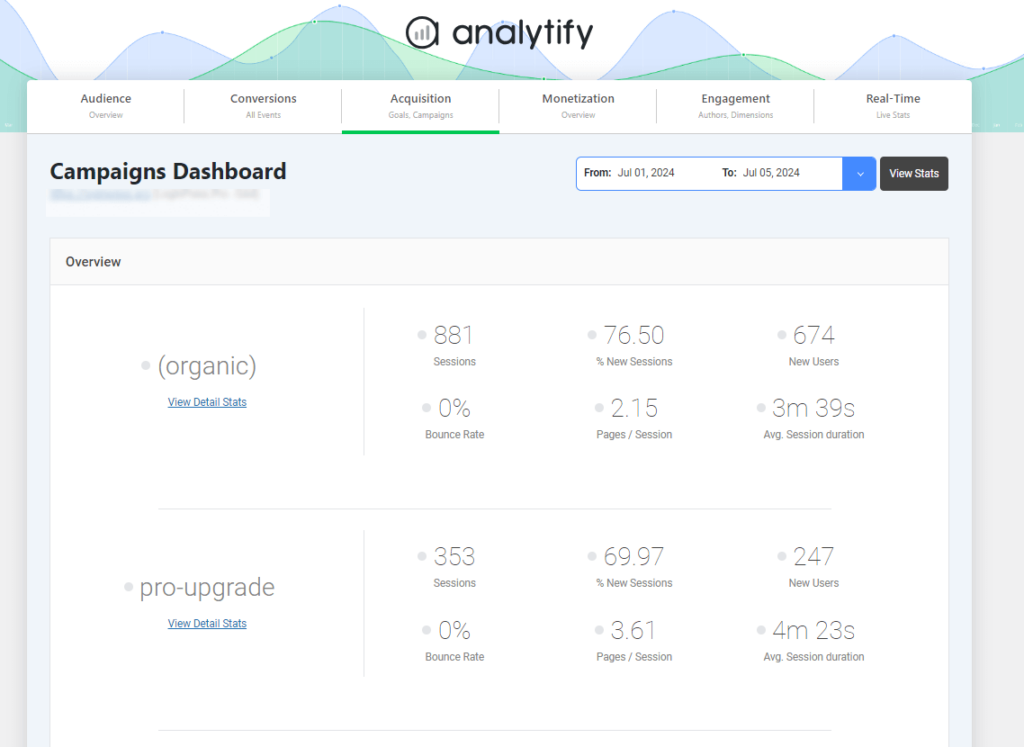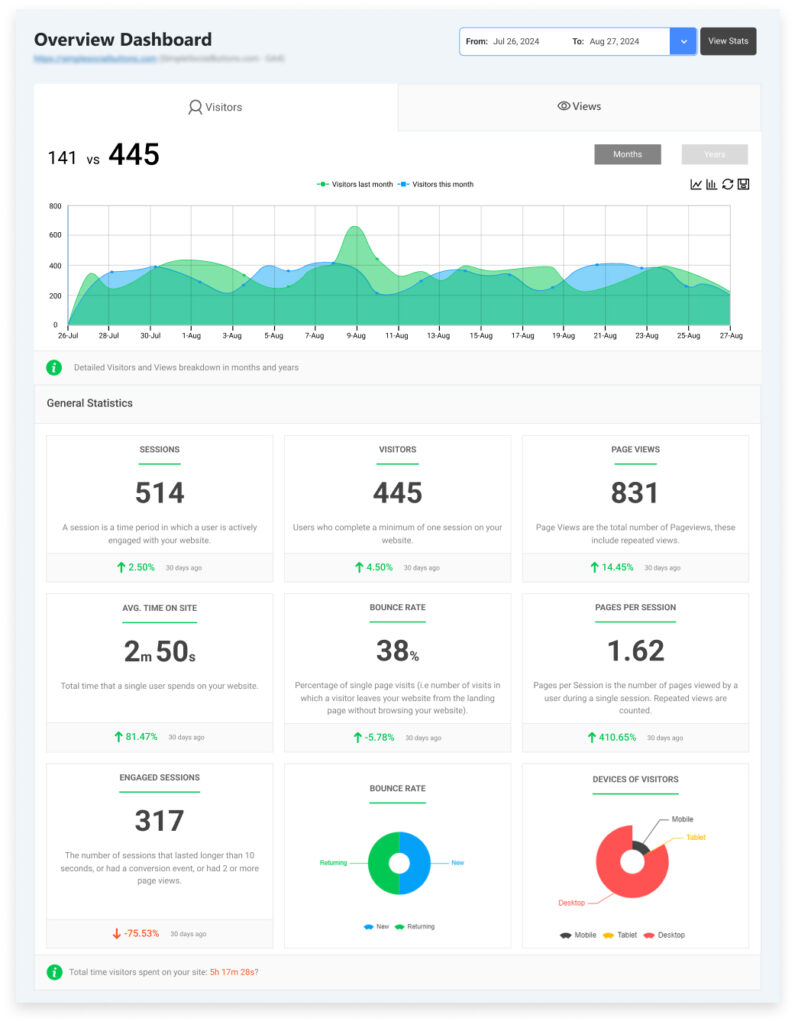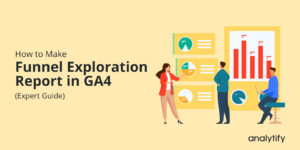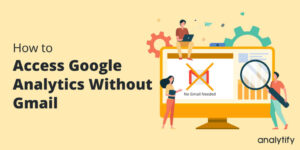
Implementing AI-Optimized PPC Campaigns (Explained 2025)
AI-optimized PPC campaigns are changing how online ads work. They make ads smarter, faster, and more cost-effective.
In the past, marketers had to spend hours adjusting bids, testing ads, and checking reports. Now, AI in PPC helps with all these tasks by using data and automation. It finds the best audience, improves targeting, and makes better use of the budget.
In this guide, we will explain what AI-optimized PPC campaigns mean, the key tools and platforms to use, step-by-step implementation, and best practices.
AI-Optimized PPC Campaigns (TOC):
What Does AI-Optimized PPC Mean?
AI-optimized PPC campaigns use artificial intelligence to make pay-per-click ads smarter. Instead of manual work, AI studies data and improves campaigns in real time.
With AI in PPC campaign optimization, ads can change based on user behavior, device, or even time of day. This means better targeting and less wasted spend.
Manual PPC needs human guesswork. You set bids, choose keywords, and test ads step by step. With AI-powered PPC campaign optimization, the system does this automatically. It uses predictive modeling, machine learning, and instant response.
In short, AI in PPC helps brands run faster, more accurate, and more profitable ad campaigns.
Key AI Capabilities in PPC
AI PPC management helps you target better, spend smarter, and get more conversions with less manual effort.
Here are the most important features:
1. Smart Targeting
AI studies user data like location, device, search history, and behavior. It shows ads to people who are most likely to click or buy. This improves ROI and reduces wasted spend.
2. Automated Bidding
With AI in PPC, bids are adjusted in real time. AI knows when to increase or lower bids for the best results. You don’t need to watch campaigns every minute.
3. Ad Creative Optimization
AI tests different headlines, images, and calls to action. It learns which combination works best and shows that to users.
4. Predictive Analytics
AI-powered PPC campaign optimization can predict which audience segment will convert. It uses machine learning models to forecast results before you spend too much money.
5. Performance Insights
AI gives clear reports and finds hidden patterns. It shows which ads are working and what needs to change.
AI Tools and Platforms to Use
Running AI-optimized PPC campaigns becomes easier with the right tools. These PPC AI tools handle bidding, targeting, and reporting so you can focus on strategy. Here are some trusted options:
- Google Ads Smart Bidding: Uses machine learning to adjust bids and boost conversions.
- Microsoft Advertising AI: Offers automated insights and ad suggestions for search campaigns.
- Optmyzr: A powerful platform for AI-driven bid management, reporting, and optimization.
- SEMrush: Helps with keyword research, competitor analysis, and ad performance tracking.
For tracking campaign performance, you can also connect with Analytify. It makes Google Analytics simple inside WordPress and helps measure PPC results clearly.
These AI tools for PPC save time, reduce manual errors, and make campaigns more profitable.
How to Implement AI-Optimized PPC Campaigns Step-by-Step
Setting up AI-optimized PPC campaigns is not difficult, but it works best when you follow a clear process. Below are the steps you can use to build and manage your campaigns.
Step 1: Define Clear Goals
Before using AI, you need to know what you want. Do you want more website traffic, sales, or leads? For example, an ecommerce store may focus on “sales,” while a local business may want “phone calls.”
When you set goals, AI tools can learn faster. They will optimize ads based on what you value most. Without goals, AI may push clicks that don’t help your business.
Step 2: Choose the Right PPC AI Tools
There are many AI tools for PPC, such as Google Ads Smart Bidding, Optmyzr, or Microsoft Advertising AI. Each platform has different strengths.
- Google Ads Smart Bidding works well for automated bidding and conversion optimization.
- Optmyzr is great for agencies managing multiple accounts.
- WordStream helps small businesses improve ads quickly.
The tool you choose should match your goals and budget.
Step 3: Collect and Connect Data
AI only works if it has enough data to learn. Connect your campaigns to analytics tools like Google Analytics and Analytify.
This way, AI can see which keywords, ads, or audiences bring results. For example, if 80% of sales come from mobile users, AI will prioritize them automatically.
Step 4: Set Up Smart Targeting
With AI in PPC campaign optimization, you don’t have to guess who your audience is. AI studies signals like device, time, interests, and location.
For example, an online clothing store can run different ads for men and women. A local restaurant can target people nearby during lunch hours. AI ensures ads are shown to the right people at the right moment.
Step 5: Automate Bidding
Manual bidding is time-consuming and risky. With AI-powered PPC campaign optimization, bids change in real time.
AI knows when to increase bids for high-value customers and when to lower them to save money. This helps you get more conversions without overspending.
Step 6: Test and Optimize Creatives
Good ads need strong headlines and images. Instead of testing manually, AI rotates different versions of your ads. It learns which headline or image gets the most clicks and shows that more often.
For example, if “Free Shipping Today” performs better than “Limited Offer,” AI will favor it automatically.
Step 7: Monitor and Improve
AI is smart, but you should still guide it. Check reports weekly. Look for insights such as top-performing keywords, locations, or audiences.
Plugins like Analytify make tracking easy inside WordPress. You can see traffic, conversions, and revenue directly in your dashboard. This helps you decide if you need to adjust your budget or expand campaigns
How Businesses Use AI in PPC
The steps we discussed above are not just theory. Many businesses already apply them to make their campaigns smarter. Here are a few examples:
1. Ecommerce Store
An online fashion shop used AI-powered targeting and bidding. The system studied shopping behavior and adjusted bids based on demand. It also tested different ad creatives for men and women. This is how Step 4 (Targeting) and Step 6 (Creative Testing) work in practice. Result: higher CTR and more sales without increasing budget.
2. Local Business
A pizza shop used real-time bidding and smart ad scheduling. The AI tool found that most orders came at night from mobile users. It raised bids during those hours and used ads with “Order Now” buttons. This shows how Step 5 (Automated Bidding) and Step 7 (Monitoring) help local businesses grow.
3. B2B SaaS Company
A software company used predictive analytics to find high-value leads. The AI learned which industries responded better and reduced spend on weak audiences. This came from Step 3 (Data Connection) and Step 4 (Smart Targeting). The company got better leads and stronger ROI.
These examples show how AI in PPC campaign optimization can work for any business type, including ecommerce, local, or B2B. By following the steps, companies save time, cut wasted spend, and reach the right audience.
Benefits of AI-Optimized PPC
Using AI in PPC is not only about saving time. It changes the whole way campaigns perform. Here are the key benefits:
1. Efficiency and Time Savings
With AI PPC management, you don’t need to watch campaigns 24/7. Bids, targeting, and testing run on auto-pilot. This frees up time for strategy.
2. Smarter Targeting and Personalization
AI studies user behavior and shows the right ad at the right time. For example, ecommerce stores can run different ads for men and women, just like in our earlier example.
3. Real-Time Data Optimization
Manual strategies take days to adjust. With AI-powered PPC campaign optimization, ads change instantly based on live signals like device or time of day.
4. Better ROI and Reduced Waste
AI spends money where it works best. It lowers bids for weak traffic and increases them for high-value customers. Businesses see more conversions with less wasted budget.
So, AI-optimized PPC campaigns give marketers more control with less effort. They scale faster, adapt quicker, and deliver higher returns compared to manual methods.
Tracking PPC Results with Analytify
Join 50,000+ beginners & professionals who use Analytify to simplify their Google Analytics!
Running AI-optimized PPC campaigns can be very useful, but many marketers still face the same problem: tracking results in Google Analytics is confusing and takes too much time. Without clear reports, it’s hard to know which ads bring sales and which ones just waste budget.
Analytify makes this easier. It shows your Google Analytics reports right inside WordPress, in a clear and simple view.
With Analytify, you can:
- Instantly see which PPC campaigns drive the most traffic and conversions.
- Track revenue from Google Ads, Facebook Ads, or any paid channel without digging into GA4.
- Understand top-performing ads, keywords, and landing pages right from your WordPress dashboard.
- Share easy reports with clients or teams, so everyone sees campaign performance in plain language.
For example, if you run ecommerce ads, Analytify shows you which campaigns earn the most sales and revenue. For local businesses, it highlights leads from forms, calls, or store visits.
When you use AI for PPC and track results with Analytify, you don’t just run ads; you also see clearly which campaigns work and which don’t. It helps you measure ROI in a simple way and understand the real impact of your ads.
AI-Optimized PPC Campaigns FAQs
1. How can AI be used for PPC?
AI can be used in PPC to handle tasks that normally take a lot of time. For example, it can adjust bids in real time, pick the right audience, and test ad copy automatically. This makes campaigns run smoother and helps reduce wasted spend.
2. How do AI algorithms optimize ad campaigns?
AI algorithms look at large amounts of data, such as user behavior, devices, and times of day. Based on this, they predict which ads will perform best. Then they adjust bids, improve targeting, and show the most effective ad creatives. This is called AI-powered PPC campaign optimization.
3. How do you optimize a PPC campaign?
To optimize a PPC campaign, you need to set clear goals, target the right audience, test ad creatives, and track performance. Doing this manually takes time. But with AI PPC tools, much of the work is automated. They can run tests, update bids, and share insights so you can focus on strategy instead of daily adjustments.
4. What is the future of PPC with AI?
The future of PPC with AI looks very promising. Ads will become more personalized, budgets will be used more effectively, and marketers will spend less time on manual work. As AI in PPC gets better, campaigns will be more accurate, and ROI will improve. Marketers who use AI early will have a big advantage.
AI in PPC: Final Thoughts
AI-optimized PPC campaigns are no longer just a trend. They are becoming the standard way to run ads. With AI, campaigns are faster, smarter, and more cost-effective.
We covered what AI in PPC means, the main tools, step-by-step implementations, use cases, and the benefits.
The big takeaway is simple: AI helps you run better ads, and plugins like Analytify help you track the results in a clear way.
If you want to save time, reduce wasted spend, and improve ROI, now is the right time to start using AI in your PPC campaigns.
- Google Ads Conversion Tracking With GTM (Explained 2025)
- How To Set up Google Analytics 4 (Easy Guide 2025)
- AI Data Analytics (Tools And Tips 2025)
- AI SEO Tools: 10 Top-Rated Solutions To Choose In 2025
Now, we’d love to hear from you. Have you tried using AI for your PPC campaigns yet? What results did you see






